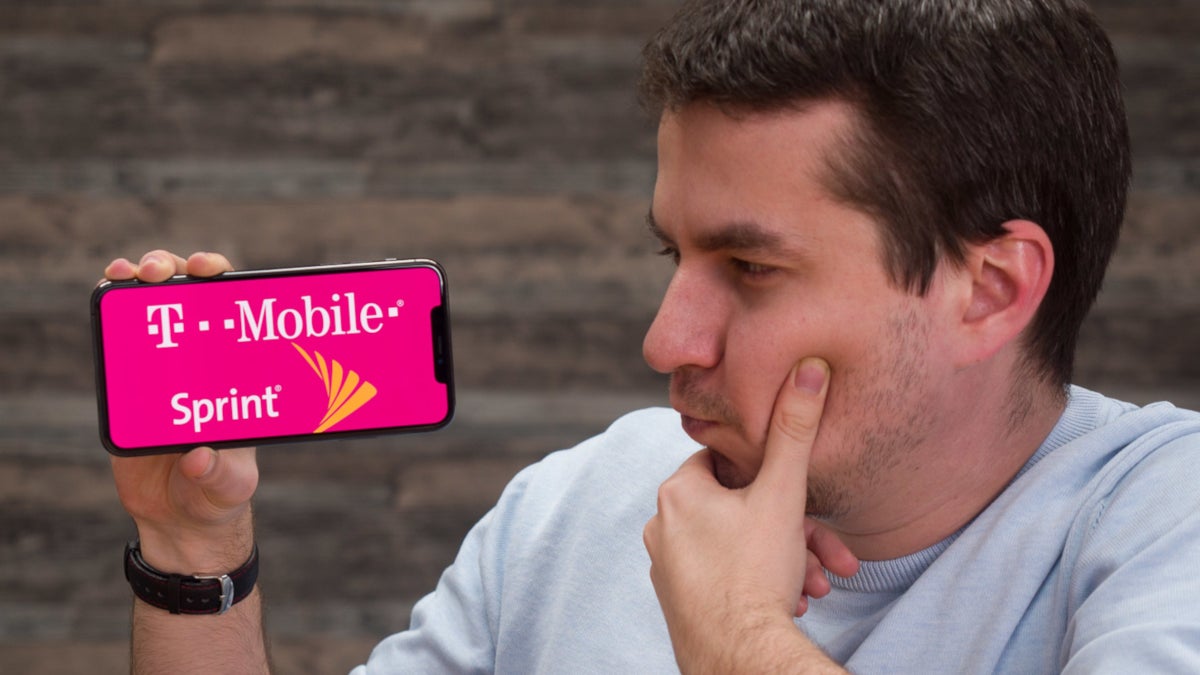Hidden message from investors: T-Mobile will not close on its current merger deal with Sprint

Earlier this year, we introduced you to a method that determines how optimistic Wall Street is about the T-Mobile-Sprint merger closing. This figure can be calculated by taking the price of T-Mobile's shares (ticker symbol: TMUS) and multiplying that number by 0.10256. That gives you the value of T-Mobile stock that each Sprint shareholder will receive in the merger (unless the terms of the deal change, more on that later). Subtract Sprint's stock price (ticker symbol: S) from that figure and that is the so-called "spread." The smaller the spread, the more optimistic traders are that the deal will close.
But as Bloomberg reports, that spread hit a record high of $2.85 this morning from the low of 53 cents hit a month after the merger was announced in April 2018. That means one of two things: investors aren't confident that the deal will get done, or they expect T-Mobile to sharply change the terms of the deal. There is an opening that would allow T-Mobile to do this; the original merger agreement expired and was renewed once. The renewed agreement expired on November 1st allowing T-Mobile to cut the price of the deal or threaten to walk away. At the close of trading today, the spread was $2.84, still flashing a red warning light.
Earlier today, we told you that closing arguments in the trial that will determine the fate of the merger will take place on January 15th. Two weeks of testimony have been completed and based on that testimony, Cowen & Co. analyst Paul Gallant sent a note to clients today. In that note, he puts the odds of a ruling in favor of the states at 60%.
The big question: can Dish replace Sprint to keep the competitive landscape unchanged?
Gallant, a former FCC legal adviser, wrote that "Both the parties' private texts and (Judge) Marrero's questions repeatedly referred to this as a 'four to three' merger. The analyst says that this means the states "probably met their initial burden of proof." On the other hand, the judge did not appear to be convinced that a 25% reduction in the number of major carriers will automatically lead to higher prices in the industry. States' witness Carl Shaprio, an economics professor at the University of California at Berkeley, testified that the merger could cost consumers $8.7 billion in additional costs. Judge Marrero asked Shapiro whether the carriers would "be so bold" as to raise prices in the aftermath of the merger without an accompanying rise in the service provided.

Investors are not optimistic that the T-Mobile-Sprint deal will close in its present form
The lawsuit being tried in front of the judge was filed by several state attorneys general and the attorney general of Washington D.C. In November, the states of Nevada and Texas settled with T-Mobile and both of those states pulled out of the lawsuit. The $26.5 billion question is whether Judge Marrero is confident that the deal between Sprint and Dish Network will result in turning the latter into the "fourth nationwide facilities-based network competitor." Once the merger between T-Mobile and Sprint is closed, Dish Network will pay $5 billion for all of Sprint's pre-paid businesses including Virgin Mobile and Boost Mobile. The units has over 9.3 million subscribers. As part of the $5 billion deal with Sprint, Dish will get the first crack at any networking equipment or retail assets divested by the combined T-Mobile-Sprint.
Dish will also get 14MHz of 800MHz low-band spectrum, 400 employees and 7,500 retail locations. The satellite television provider will then sign a seven-year MVNO deal with T-Mobile that will allow it to sell wireless service to consumers as it builds out its 5G network. Dish will need a deep-pocketed partner to help it build the network and three possibilities reportedly include Apple, Google, and Amazon.
The deal with Dish also will give T-Mobile the opportunity to lease some additional 600MHz spectrum from Dish. While T-Mobile spent $7.99 billion to win 31MHz of low-band 600MHz airwaves in a 2017 FCC auction, Dish was the second biggest spender shelling out $6.2 billion.
Follow us on Google News












Things that are NOT allowed:
To help keep our community safe and free from spam, we apply temporary limits to newly created accounts: